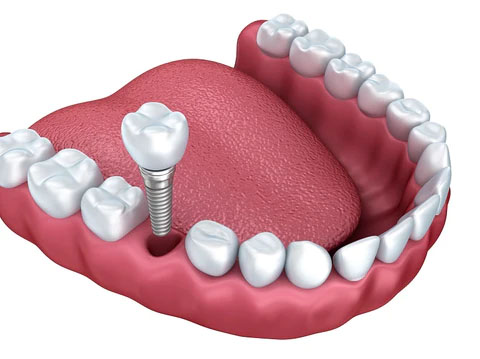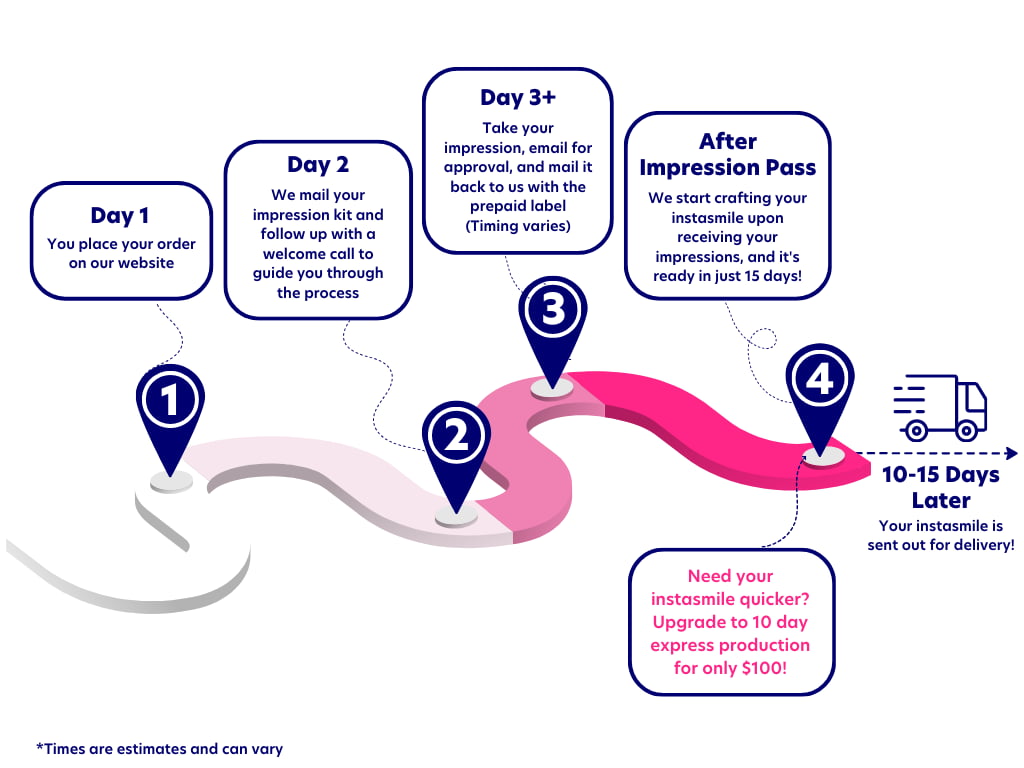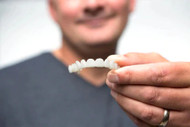How Long Do Dental Implants Last?
Dental implants are a go-to solution for people who need to replace one or more teeth. They not only result in a smile that looks more natural, but they also make it possible to feel comfortable and confident in your appearance.
Dental implants can be a great option to replace any missing or damaged teeth. But you may now be wondering, how long will these fake teeth last?
In general, dental implants are meant to be more of a permanent solution for tooth loss and usually have a lifespan of around 20-30 years. Though this also largely depends on how well you take care of your teeth and maintain good oral hygiene habits which affect its longevity.
In this blog post, we'll look at how different factors affect the lifespan of dental implants, how to maintain the integrity of your dental implants, and how to maintain an excellent oral hygiene routine.

What factors influence how long implants last?
Lifestyle choices
Excessive smoking and heavy drinking can have a significant impact on the longevity of your dental implants.
This is especially important to keep in mind during the initial stages of your dental implant treatment. Your body requires adequate blood flow to the treated area for your dental implants to heal properly. Nicotine can slow your recovery by affecting your blood vessels, oxygen levels, and blood flow.
Smoking also increases the risk of bacterial plaque formation, which can lead to gum disease if not treated properly. When you smoke, you reduce the amount of oxygen in your bloodstream, preventing infected gums from healing properly. You risk developing an infection and delaying the healing process if you smoke before your implant has fully healed.
It is strongly advised that you wait at least 72 hours after receiving your implants before consuming alcoholic beverages. This is due to the fact that your body requires time to heal and begin the recovery process.
Because alcohol thins your blood, it will be unable to clot effectively after surgery to aid in the healing of your gums. Dehydration can also result from excessive alcohol consumption. This means that the tissues in your mouth may 'dry out,' making them unable to heal properly.
Oral hygiene
Although your dental implants will eventually become a part of you, it is important to take extra care of them after they have been placed. This means making sure that your gums are healthy and that there is enough density in your jawbone for the titanium root to fuse properly.
Before getting implants, you must treat any gum disease and ensure that your jawbone can hold the implant securely.
The teeth and gums around the implant are not resistant to decay, despite the fact that titanium and the ceramic crown on top are. This is why maintaining excellent oral hygiene is critical.
Even with dental implants in place, you will be susceptible to issues such as gum disease, so you must maintain a high level of oral hygiene. Gum disease is the most common cause of tooth loss in adults; it can be painful and have a negative impact on your overall health.
Brushing your teeth twice a day and flossing as often as possible will help to prevent plaque buildup and keep your gums healthy.
The titanium root will usually last a lifetime, and the ceramic crown will need to be replaced only occasionally. However, if you have gum disease and dental implants, there is a greater chance that the implant will fail and be rejected.
Other factors can wreak havoc on your oral health, even if you practice good oral hygiene.

Damage or injury
Ceramic crowns are not indestructible, despite the fact that dental implants are a permanent treatment option. Ceramic crowns, like natural teeth, are susceptible to cracking and damage.
Dental crowns can be damaged in a variety of ways, including:
- Facial trauma
- Chewing hard objects like brittle sweets or ice
- Eating foods that are sticky or chewy
- Opening bottles or plastic packaging with your teeth as tools
While your natural teeth and dental implants can withstand some pressure and force, it should only be used when eating and chewing.
The length of time your dental implants will last before needing to be replaced will be greatly reduced if you use your teeth as tools.
When you use your teeth to open things like bottles or plastic packaging, you risk damaging not only your dental implant, but also your gums and natural teeth.
If the ceramic crown portion of your dental implant is damaged due to one of the reasons listed above, your dentist may be able to repair it rather than replace it. This is entirely dependent on the extent of the crown damage and whether the titanium root is also affected.
The root of your implant will be fused with your jawbone once it has fully healed. Your dental implant, like the root of a natural tooth, could be knocked loose if your jaw is damaged. If this is the case, your implants may need to be refitted after your jaw has healed.
Medical problems
Dental implants can also be affected by certain pre-existing medical conditions. Conditions like diabetes or a weakened immune system, for example, can affect the effectiveness of your treatment as well as the length of time your dental implants will last before needing to be replaced.
Diabetes and a weakened immune system make you more susceptible to infections and make it take longer for your body to recover and heal.
The longevity of your dental implants is determined by how well you manage your diabetes. You will be more susceptible to infections and implant failure if you do not control your diabetes.
As previously stated, osseointegration, or the fusing of the titanium root to the bone, is critical to the longevity and success rate of dental implants. To accept the implant and ensure the treatment's longevity, your gums must heal completely and be as healthy as possible.
Any medical conditions you currently have or are being treated for should be disclosed to your dentist prior to any treatment. They will be able to assess your situation and develop a treatment plan that is specific to your requirements.
The Bottom line
One or more of these factors can influence the longevity of dental implants as well as your overall oral health. Before beginning treatment, it's always a good idea to talk to your dentist about all of your options and any existing medical conditions. They can then determine whether dental implants are the best option for you. At Instasmile we offer a great alternative to dental implants with clip-on veneers allowing you so get your fuller smile back without having to visit a dentist.

Frequently Asked Questions
How long do implants actually last?
Implants are a great option for long-term tooth replacement because they look like natural teeth and only require minor maintenance. How long fake teeth last is largely determined by the patient's lifestyle and overall dental health.
How can fake teeth fail?
When properly cared for, fake teeth can provide a long-term replacement for missing or damaged teeth, but there are a number of conditions or situations that can cause an implant to fail prematurely.
People with diabetes or other pre-existing medical conditions, for example, cancer, have higher probability of having their implant fail. Because the gums and neighboring teeth are still vulnerable, dental implants must be maintained with regular brushing and flossing. Gum disease can be caused by poor oral hygiene, which can compromise the success of a dental implant.
What can affect their lifespan?
Different factors, such as oral health, lifestyle choices, injury or damage, and medical conditions, can all affect how long a dental implant lasts.
Check out things to know before getting fake teeth.



 UK
UK
 USA
USA
 Australia
Australia

